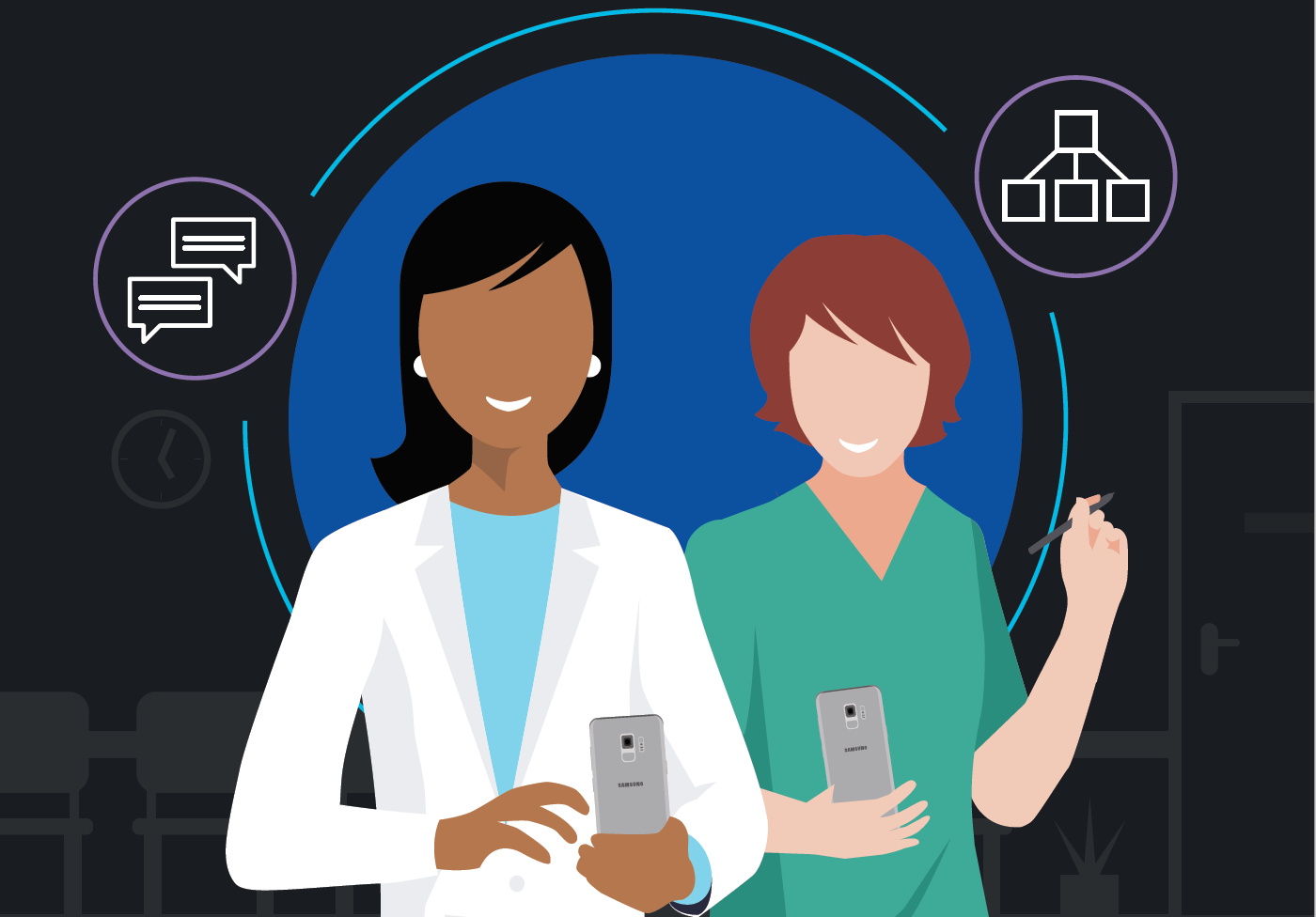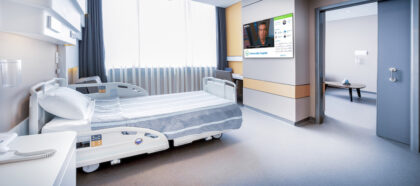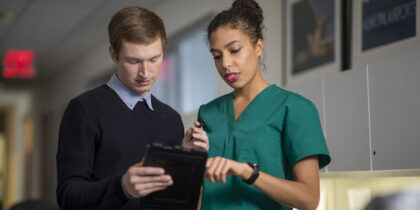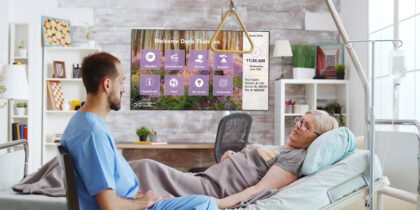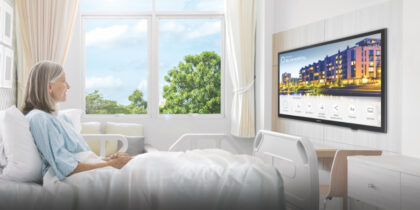The healthcare industry was one of the slowest to adopt digital technology, including PCs. But it appears that many doctors are already prepared to dump their PCs in favor of more agile and powerful smartphones for frontline healthcare usage.
Recently, in November 2018, The New Yorker magazine ran an article bluntly titled, “Why Doctors Hate Their Computers.” It made its bold case with statements like this by the article’s author, Dr. Atul Gawande:
“Doctors are among the most technology-avid people in society; computerization has simplified tasks in many industries. Yet somehow we’ve reached a point where people in the medical profession actively, viscerally, volubly hate their computers.”
Gawande is a practicing Boston-based surgeon, public health researcher and staff writer for The New Yorker for the last 20 years. So this was not some sensationalistic hit piece by someone lacking expertise in healthcare technology; this was written by an actual end user who also happens to be on top of the latest trends in mobile health IT.
Insight That Diagnoses an Industry-Wide Dilemma
Gawande’s article, which was still one of The New Yorker’s most popular three weeks after its publication, is a broad critique of the pluses and minuses that the overall digitization movement has brought to hospitals and clinics. But many of the issues he identifies, such as increased morale-sapping bureaucracy and paperwork, clinical staff burnout and deterioration in doctor-patient relations, appear to be ones for which PCs are a primary culprit.
“A 2016 study found that physicians spent about two hours doing computer work for every hour spent face to face with a patient,” wrote Gawande. “In the examination room, physicians devoted half of their patient time facing the screen to do electronic tasks.”
According to Gawande, plopping a huge screen in between physician and patient can’t help but hurt the rapport which is so key to effective questioning and diagnosis. In other words, doctors are problem-solvers. PCs inhibit their ability to solve problems.
“I’ve come to feel that a system that promised to increase my mastery over my work has, instead, increased my work’s mastery over me,” he wrote.
The Prescription: Smartphones
Gawande also makes the argument that mobile devices would help alleviate the problems created by PCs, empowering doctors to diagnose more creatively and effectively.
“Why can’t our work systems be like our smartphones — flexible, easy, customizable?” questions Gawande, who goes on to write approvingly of a growing mobile-based movement in healthcare.
How to Create a Mobile-First Hospital
Get your free guide to modernizing clinical communications with smartphones. Download Now
He goes on to elaborate that, “[A] movement has emerged to establish something like an app store for electronic medical records, one that functions much the way the app store on your smartphone does. If the software companies provided an ‘application programming interface,’ or API, staff could pick and choose apps according to their needs: an internist could download an app to batch patients’ prescription refills; a pediatric nurse could download one to set up a growth chart.”
Mainstream electronic health record companies, including the largest provider, Epic, are responding to this movement and opening their systems up to mobile apps. This will drive many healthcare organizations to add smartphones as approved access devices. But the most forward-thinking organizations will not add smartphones alongside PCs, but go mobile-only by adopting an all-in-one-capable smartphone such as Samsung’s line of DeX capable mobile devices.
A Dose of Storage, Security and Convenience
With its ultra-fast processor, huge 128GB standard storage (expandable up to 2TB) and 4,000 mAh all-day battery, the Samsung Galaxy Note9 is one of the most powerful smartphones on the market today. The Note9’s mammoth 6.4-in. screen makes it easy for doctors to call up x-rays and other images and show them to patients to aid in explanations.
The Note9 also boasts several unique features that make it a true desktop PC replacement, unlike other smartphones. Its defense-grade Samsung Knox security platform protects it against hackers and other threats. The S Pen stylus makes filling out online forms and entering notes and other data a breeze without creating the physical barrier to a patient that a laptop might.
More powerfully, the Note9’s built-in DeX software lets doctors turn any space into a workspace. Just connect the Note9 to a Bluetooth keyboard and mouse and to an HDMI-enabled monitor, and doctors can quickly and easily fill out forms, enter notes, send and receive emails, transmit prescriptions and more. They can even use DeX to extend images onto the larger monitor to better answer patients’ questions.
Meanwhile, Samsung Knox makes the Note9 easy to secure and manage. That means clinics that go mobile-only with the Note9 and dump their legacy pagers and PCs can slash their Total Cost of Ownership (TCO) for devices, saving substaintial amounts of time and money. Greater productivity at lower effort and cost? The mobile-only prognosis looks very healthy.
Learn more about how physicians can save time and streamline data entry by downloading our free white paper on going mobile-only with Samsung DeX.

